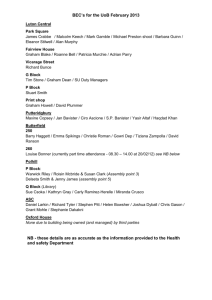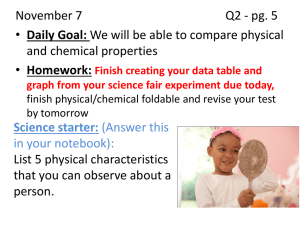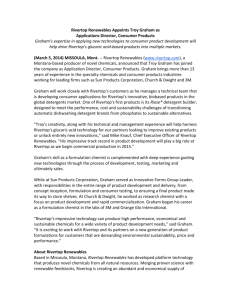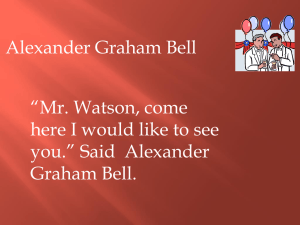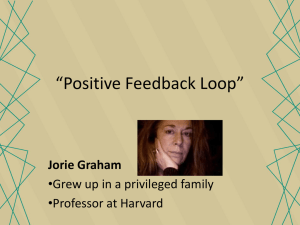Graham Coxon: `A+E` biography
advertisement
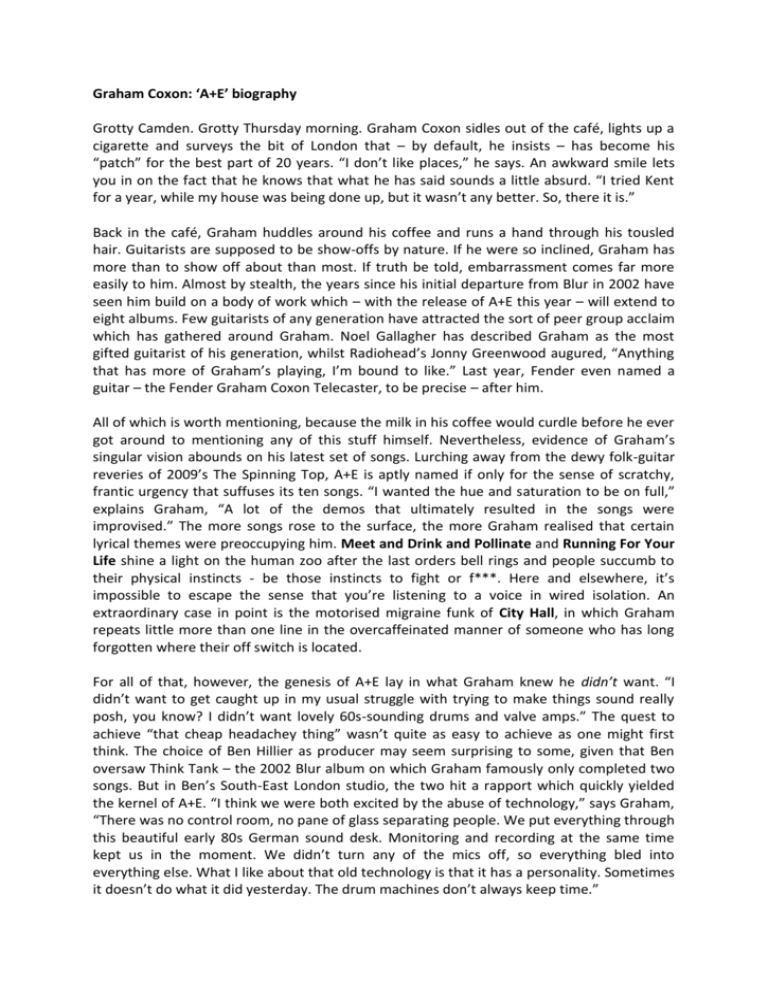
Graham Coxon: ‘A+E’ biography Grotty Camden. Grotty Thursday morning. Graham Coxon sidles out of the café, lights up a cigarette and surveys the bit of London that – by default, he insists – has become his “patch” for the best part of 20 years. “I don’t like places,” he says. An awkward smile lets you in on the fact that he knows that what he has said sounds a little absurd. “I tried Kent for a year, while my house was being done up, but it wasn’t any better. So, there it is.” Back in the café, Graham huddles around his coffee and runs a hand through his tousled hair. Guitarists are supposed to be show-offs by nature. If he were so inclined, Graham has more than to show off about than most. If truth be told, embarrassment comes far more easily to him. Almost by stealth, the years since his initial departure from Blur in 2002 have seen him build on a body of work which – with the release of A+E this year – will extend to eight albums. Few guitarists of any generation have attracted the sort of peer group acclaim which has gathered around Graham. Noel Gallagher has described Graham as the most gifted guitarist of his generation, whilst Radiohead’s Jonny Greenwood augured, “Anything that has more of Graham’s playing, I’m bound to like.” Last year, Fender even named a guitar – the Fender Graham Coxon Telecaster, to be precise – after him. All of which is worth mentioning, because the milk in his coffee would curdle before he ever got around to mentioning any of this stuff himself. Nevertheless, evidence of Graham’s singular vision abounds on his latest set of songs. Lurching away from the dewy folk-guitar reveries of 2009’s The Spinning Top, A+E is aptly named if only for the sense of scratchy, frantic urgency that suffuses its ten songs. “I wanted the hue and saturation to be on full,” explains Graham, “A lot of the demos that ultimately resulted in the songs were improvised.” The more songs rose to the surface, the more Graham realised that certain lyrical themes were preoccupying him. Meet and Drink and Pollinate and Running For Your Life shine a light on the human zoo after the last orders bell rings and people succumb to their physical instincts - be those instincts to fight or f***. Here and elsewhere, it’s impossible to escape the sense that you’re listening to a voice in wired isolation. An extraordinary case in point is the motorised migraine funk of City Hall, in which Graham repeats little more than one line in the overcaffeinated manner of someone who has long forgotten where their off switch is located. For all of that, however, the genesis of A+E lay in what Graham knew he didn’t want. “I didn’t want to get caught up in my usual struggle with trying to make things sound really posh, you know? I didn’t want lovely 60s-sounding drums and valve amps.” The quest to achieve “that cheap headachey thing” wasn’t quite as easy to achieve as one might first think. The choice of Ben Hillier as producer may seem surprising to some, given that Ben oversaw Think Tank – the 2002 Blur album on which Graham famously only completed two songs. But in Ben’s South-East London studio, the two hit a rapport which quickly yielded the kernel of A+E. “I think we were both excited by the abuse of technology,” says Graham, “There was no control room, no pane of glass separating people. We put everything through this beautiful early 80s German sound desk. Monitoring and recording at the same time kept us in the moment. We didn’t turn any of the mics off, so everything bled into everything else. What I like about that old technology is that it has a personality. Sometimes it doesn’t do what it did yesterday. The drum machines don’t always keep time.” With the songs recorded, force of habit propelled Graham and Ben to another studio “with a posh desk” to complete the final mix of the record. But it wasn’t to be. “It was a bit like My Fair Lady,” recalls Graham, “ It was being forced into being posh, when it really wasn’t that sort of record. So we went back to the little German desk.” If some songs are fated to wear the equivalent of high couture, others sound best in the sonic equivalent of a hair shirt. On Bah Singer, police sirens vie with manic accelerating guitar downstrokes to thrillingly unsettling effect. Distant echoes of Wire and Can are perhaps discernible on the arpeggiating “loser groove” of What’ll It Take. “I don’t really know what’s wrong with me”, sings Graham, over and over again until the very meaning seems to drain from the words and his voice erodes into the surrounding noise. “You know when you see people in movies and they’re being sectioned? They’re being dragged down through a corridor, shouting? And the voice gets more echo-y, and then you hear the slam of a cell door? I love that! It makes me laugh. I mean, anything that goes wrong in your brain is terrifying, but I also find it funny.” If Graham feels able to smile at the fragility of the human psyche, it’s an amusement born of his own well-documented battles. On Advice he even takes a gentle dig at the inability of his younger self to enjoy the huge success that came with being a member of Blur. The routine that comes with sobriety and responsibility is a blessing. But Camden affords no shortage of opportunities to be reminded how easily it could all unravel. It’s perhaps no accident that the woozy, febrile Ohh, Yeh Yeh sounds like a blues, given that it relates a tale that isn’t to dissimilar from a crossroads encounter with the devil: “It was written about somebody I bumped into at 6am while I was going to get some milk – an old mate. He was absolutely f***ed, and I was absolutely terrified seeing him there. It was frightening how seductive he was, in a way. So, yes, it really did seem like he was the devil at that point. He was in a place where I wanted to be so much. A place outside of being human.” And now? What kind of a place does Graham find himself in now? “Well, I think that if you listened to A&E, you might well wonder,” he laughs. “But then, I can count on one hand the amount of straightforwardly happy songs I really like.” He tries nonetheless, and stalls at two*. For all of that, A+E is a life-affirming ride, a snapshot of one of our most treasured artists mainlining his raw creativity with a breathless zeal. “I can’t help noticing that no-one else my age is making music that sounds like this.” Slipping back into self-deprecation mode, he adds, “perhaps that means I shouldn’t be, either.” You want to tell him that’s precisely the reason why he should but, of course, you’d only risk embarrassing him further. *Darlin’ by The Beach Boys and Your Love Keeps Lifting Me (Higher & Higher) by Jackie Wilson
